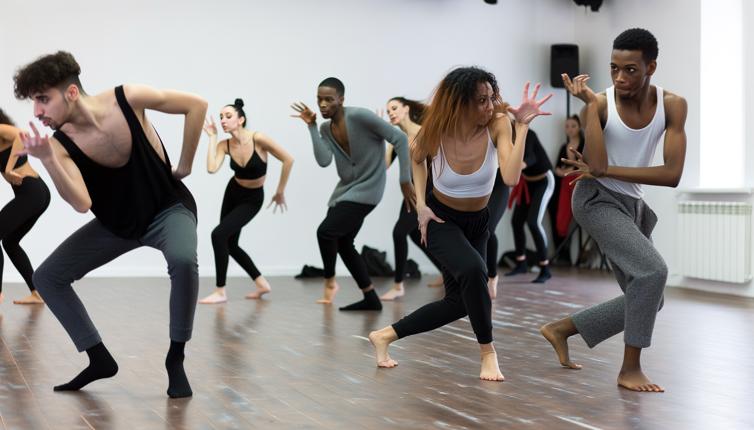Understanding Your Goals
Before diving into the search for a dance class, it's important to understand your goals. Are you looking to learn a specific dance style, improve your technique, or simply have fun? By identifying your goals, you can narrow down your options and focus on classes that align with what you want to achieve.,Beginners might be interested in introductory classes that provide a solid foundation in various dance styles. On the other hand, experienced dancers may be looking for more advanced classes or specialized workshops to expand their skills.,Take some time to reflect on what you want to gain from taking a dance class, as this will help guide your decision-making process.
Researching Dance Styles and Studios
Once you have a clear understanding of your goals, it's time to research different dance styles and studios in your area. There are numerous dance styles to choose from, including ballet, contemporary, hip-hop, jazz, salsa, and more. Each style offers a unique experience and requires different levels of skill and physicality.,Consider the type of dance that interests you the most and explore classes offered by reputable studios. Look for studios with experienced instructors who have a strong background in the style you wish to learn. Online reviews and recommendations from friends or fellow dancers can also help you gauge the quality of a studio.,Additionally, check the class schedule and location of the studios you are interested in. Ensure that the class timings and studio location are convenient for you, as this will make it easier to commit to regular attendance.
Assessing Skill Levels
One of the key factors in selecting the ideal dance class is assessing your skill level. Most dance classes cater to specific skill levels, such as beginners, intermediate dancers, or advanced performers. It's important to be honest with yourself about your current abilities and choose a class that aligns with your skill level.,If you are a beginner, look for classes that explicitly state they are for beginners or introductory levels. These classes often focus on building a strong foundation, teaching basic techniques, and helping you gain confidence on the dance floor.,Experienced dancers should seek out more advanced classes that challenge and push their skills to new heights. These classes may involve complex choreography, faster-paced movements, and opportunities for individual expression and improvisation.
Trial Classes and Observations
Before committing to a dance class, consider attending trial classes or observing a session. Many studios offer trial classes for beginners, allowing you to get a taste of the dance style and assess if it matches your expectations.,Observing a class can also be beneficial, as it allows you to see the teaching style, interaction between the instructor and students, and the overall atmosphere of the studio. Pay attention to the instructor's ability to effectively communicate and explain dance techniques, as well as the class dynamics and energy level.,These firsthand experiences can provide valuable insight into whether a particular dance class is suitable for your skill level and learning preferences.
Seeking Recommendations and Feedback
Don't hesitate to seek recommendations and feedback from other dancers or instructors. Reach out to friends, colleagues, or members of your local dance community who have taken classes in the style you are interested in.,Ask about their experiences, the quality of instruction, and whether they felt challenged and motivated in their classes. Hearing firsthand accounts can give you a better understanding of what to expect and help you make an informed decision.,You can also reach out to instructors or studio owners directly and ask for their recommendations based on your skill level and goals. They are often knowledgeable about their own classes as well as other offerings in the area, and can provide valuable insights to help you find the right fit.
Conclusion
Selecting the ideal dance class for your skill level requires careful consideration of your goals, research into dance styles and studios, honest assessment of your skill level, attending trial classes or observations, and seeking recommendations and feedback. By following this guide, you can confidently choose a dance class that will help you grow as a dancer and achieve your goals.








